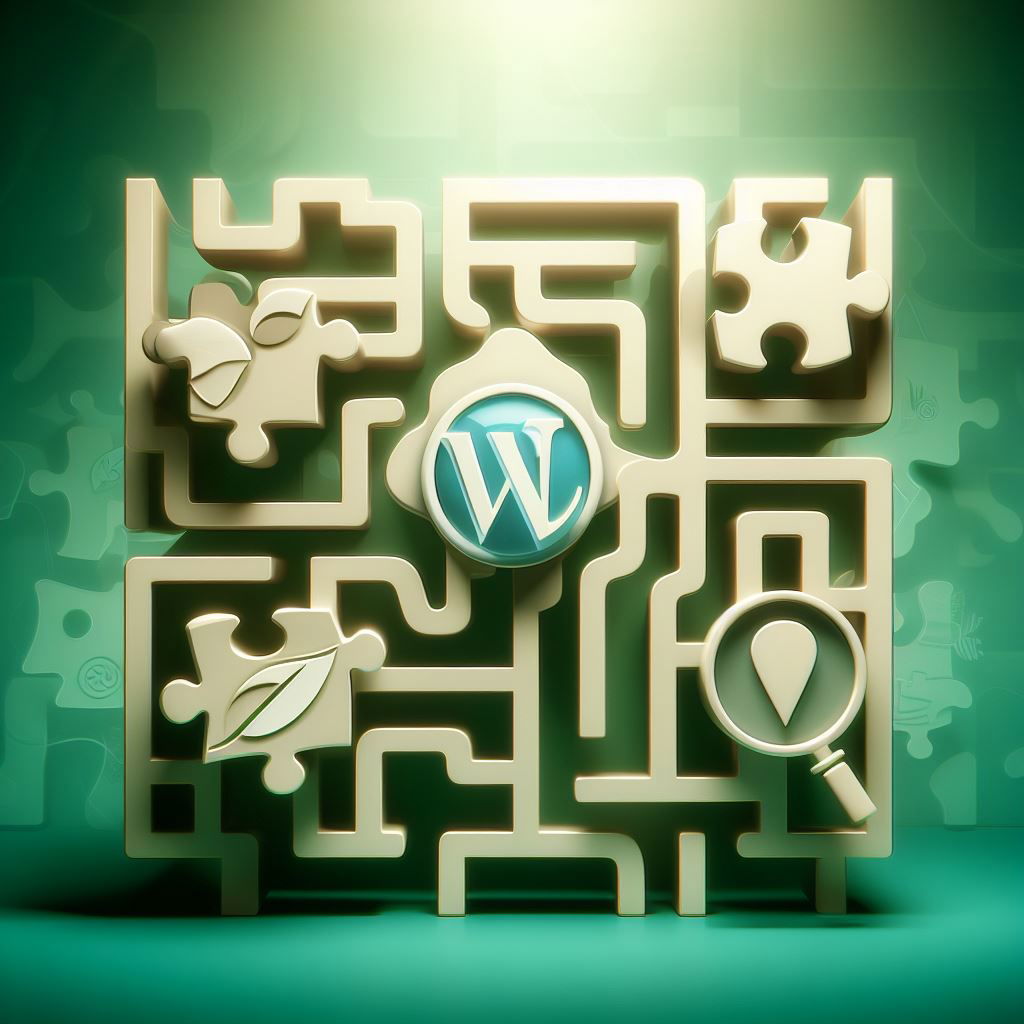Demystifying the Maze: Top 5 CMS Picks for Web Development

In the ever-evolving world of web development, choosing the right Content Management System (CMS) is crucial. A CMS empowers you to create, manage, and edit website content without needing extensive coding knowledge. This post will equip you with the knowledge to navigate the top 5 CMS options: WordPress, Wix, Drupal, Joomla!, and Shopify. We'll explore their strengths, weaknesses, and ideal use cases to guide you towards the perfect platform for your next project.
A Glimpse at the Top CMS Contenders:
1. WordPress: Renowned for its user-friendly interface and vast library of themes and plugins, WordPress is a popular choice for beginners and veterans alike. (Market Share: 43.2% of all websites according to W3Techs https://w3techs.com/)
2. Wix: Boasting a drag-and-drop interface and beautiful templates, Wix is ideal for non-technical users seeking a beginner-friendly platform for building visually stunning websites. (Market Share: 3.4% of all websites according to W3Techs https://w3techs.com/)
3. Drupal: Are robust security features and scalability for complex websites your top priorities? Then Drupal might be your champion. (Market Share: 1.0% of all websites according to W3Techs https://w3techs.com/)
4. Joomla!: This open-source platform offers a blend of flexibility, scalability, and a supportive community, making it a strong contender for various website needs. (Market Share: 2.5% of all websites according to W3Techs https://w3techs.com/)
5. Shopify: Aspiring to conquer the e-commerce world? Shopify's comprehensive suite of tools empowers you to create a thriving online store with ease. (Market Share: 5.5% of all websites, but a much larger share of e-commerce sites according to W3Techs https://w3techs.com/)
Deep Dive into the Top CMS Options
1. WordPress:
Recommendation: WordPress is an excellent choice for small to medium-sized websites, blogs, and e-commerce stores. Its user-friendly interface and extensive plugin ecosystem make it a versatile option for various projects.
Example: [https://www.cnn.com/] leverages WordPress's flexibility to deliver daily news updates alongside feature articles and video content.

2. Wix:
Recommendation: Wix is best suited for beginners or those looking to quickly build a visually appealing website. Its drag-and-drop interface and pre-built templates make it easy to create stunning sites without any coding knowledge.
Example: [https://www.deathwishcoffee.com/] is a great example of a visually captivating website built with Wix.

3. Drupal:
Recommendation: Drupal is ideal for large, complex websites that require robust security and scalability. It's a great choice for enterprise-level sites or those handling sensitive data.
Example: [https://www.stanford.edu/site/]) is built on Drupal, showcasing the platform's ability to handle a large university website.

4. Joomla!:
Recommendation: Joomla! strikes a balance between flexibility and ease of use, making it suitable for a wide range of websites. It's a good choice for community-driven sites, e-commerce stores, and small to medium-sized businesses.
Example:[https://gsas.harvard.edu/] leverages Joomla!'s scalability to deliver informative content to a vast audience.

5. Shopify:
Recommendation: Shopify is the go-to choice for e-commerce websites. Its focus on e-commerce functionalities and seamless integration with payment gateways make it a reliable option for online stores of all sizes.
Example: [www.allbirds.com] is a successful e-commerce store built with Shopify, showcasing the platform's power for online businesses.

User Testimonials: Real-World Insights
Let's hear from real people who leverage the power of these CMS platforms!
- "WordPress's user-friendly interface and vast plugin selection make it perfect for managing my bakery's website. I can easily update menus, showcase new products, and even integrate an online ordering system." - Sarah, Owner of "Sweet Treats Bakery"
- "Wix's drag-and-drop builder was a lifesaver! With minimal technical knowledge, I was able to create a beautiful website for my photography portfolio." - David, Freelance Photographer
- "Drupal's robust security features give me peace of mind knowing our company's sensitive data is protected. Plus, its scalability allows our website to grow alongside our business." - Marketing Manager, Tech Startup
- "Joomla! strikes a great balance between being powerful and user-friendly. Our non-profit organization uses it to manage our website content and keep our supporters informed about our initiatives." - Director of Communications, Environmental NGO
- "Shopify's user-friendly interface and e-commerce tools made it a breeze to launch my online clothing store. Now I can easily manage my inventory, process orders, and track sales." - Founder, Sustainable Fashion Brand
Choosing the Right Tool for the Job: A Comparison Table
Here's a quick reference table summarizing the key features, pros, and cons of each CMS to aid your decision-making process:
| Feature | WordPress | Wix | Drupal | Joomla! | Shopify |
| Ideal User | Beginner+ | Beginner | Intermediate+ | Beginner+ | Beginner+ |
| Focus | All-purpose | Design/Ease | Complex Sites | All-purpose | E-commerce |
| Pros | User-friendly, Flexible, Extensive Plugins | Drag-and-Drop, Beautiful Templates | Secure, Scalable | Flexible, Scalable, Open-Source | E-commerce Focused, Scalable |
| Cons | Security Concerns (if not maintained), Scalability Challenges | Limited Customization, Vendor Lock-In | Steeper Learning Curve | Complexity, Extension Quality Variation | Limited Design Flexibility, Monthly Fees |
| Hosting | Separate | Included | Separate | Separate | Included |
The Final Verdict: It All Depends on Your Needs
As you've seen, each CMS offers a unique set of strengths and weaknesses. The ideal choice hinges on your specific project requirements:
- Project Complexity: For simple websites or blogs, a user-friendly platform like Wix or WordPress might suffice. Complex websites with intricate functionalities might necessitate Drupal's power.
- Budget: Open-source options like WordPress or Joomla! are cost-effective, while hosted solutions like Wix or Shopify have monthly fees.
- Customization Needs: If extensive design customization is crucial, consider WordPress or Drupal. Platforms like Wix offer limited flexibility in this regard.
- Technical Expertise: For beginners, Wix or WordPress with its user-friendly interface are ideal choices. Drupal caters to advanced users comfortable with technical aspects.
By carefully considering these factors, you can select the CMS that best empowers you to build and manage a website that thrives! Remember, there's no one-size-fits-all solution. The right CMS depends on the specific needs of your project.
Bonus Tip: Don't be afraid to experiment! Many CMS platforms offer free trials or plans allowing you to explore their functionalities before committing to a paid plan.
I hope this comprehensive guide empowers you to navigate the exciting world of CMS options and select the perfect platform to bring your web development vision to life!


